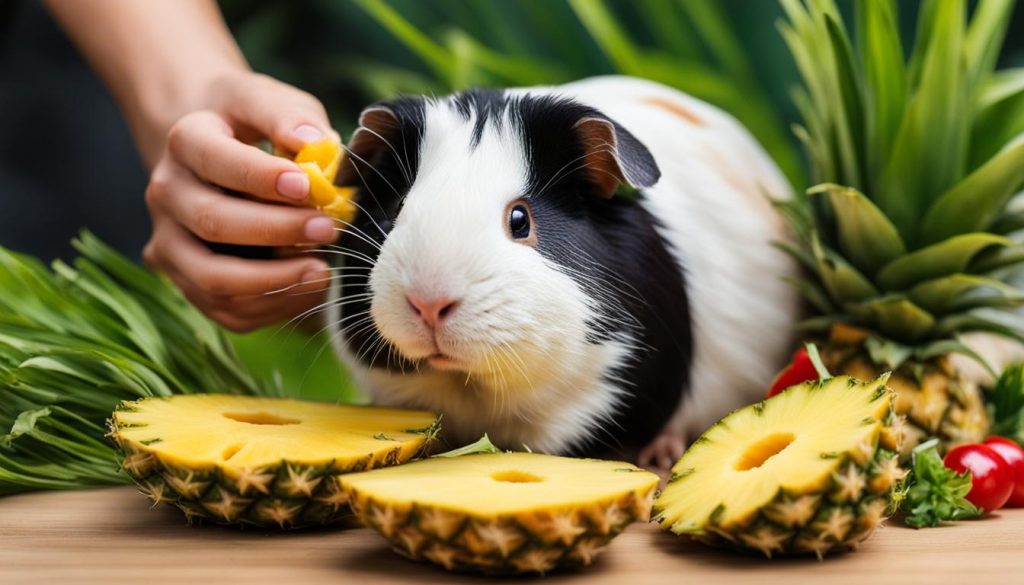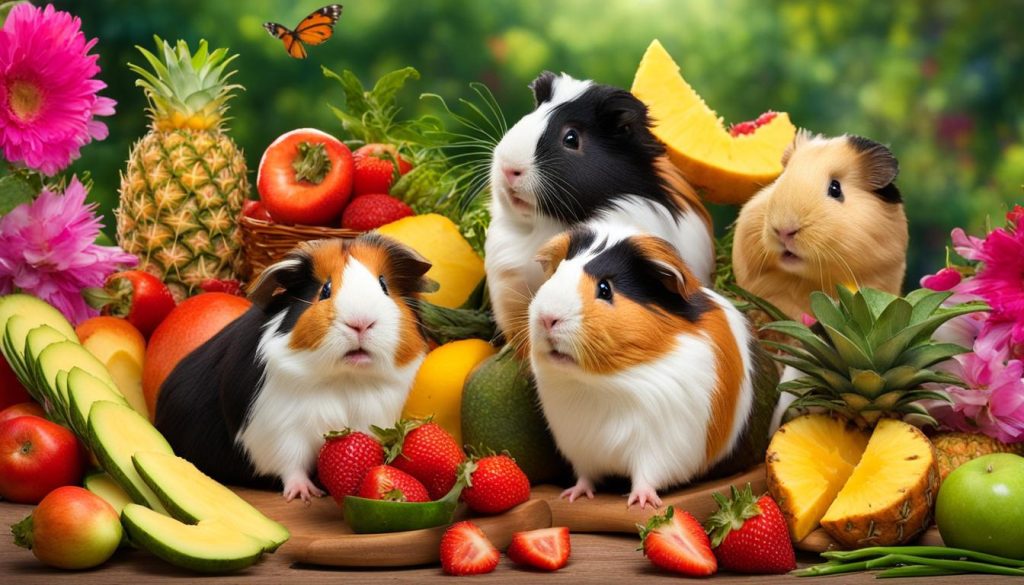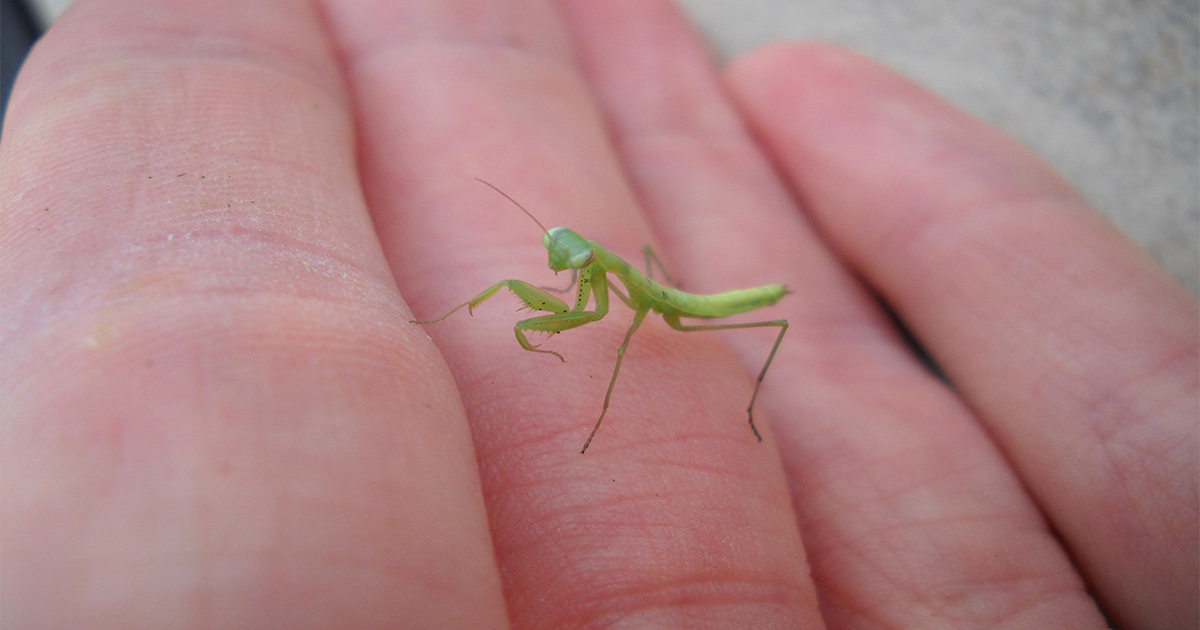Hello, fellow guinea pig enthusiasts! Today, let’s talk about everyone’s favorite tropical delight – pineapple. Have you ever wondered if guinea pigs can enjoy this sweet and tangy fruit? Well, wonder no more! In this article, I will share with you everything you need to know about feeding pineapple to your beloved furballs.
Pineapple, known for its juicy and refreshing taste, can actually be a healthy treat for guinea pigs. It is packed with essential nutrients and vitamins that can benefit their overall health and well-being. However, when it comes to pineapple, it’s all about moderation.
Can Guinea Pigs Eat Pineapple? Yes, they can enjoy it from time to time.
- Guinea pigs can safely eat pineapple, but in moderation.
- Pineapple is rich in vitamin C, which strengthens their immune system.
- Remove the leaves, skin, and core before feeding pineapple to your guinea pigs.
- Introduce pineapple gradually and monitor their digestion and overall health.
- Feed pineapple in small portions, about one square-inch cube once a week.
Health Benefits of Pineapple for Guinea Pigs
When it comes to the health of your guinea pig, pineapple can be a delicious and nutritious addition to their diet. This tropical fruit offers several benefits that can contribute to your furry friend’s overall well-being.
One of the main advantages of pineapple for guinea pigs is its high vitamin C content. Just like humans, guinea pigs are unable to produce their own vitamin C and rely on dietary sources to meet their needs. Pineapple is packed with this essential vitamin, which plays a crucial role in strengthening their immune system and protecting against infections.
Not only does pineapple contain vitamin C, but it also provides guinea pigs with important minerals like calcium and phosphorus. These minerals are necessary for maintaining healthy bones and teeth. Including pineapple in their diet can contribute to the overall skeletal health of your guinea pig.
In addition to its nutritional value, pineapple is a low-fat and low-calorie treat. This means that you can indulge your furry friend without worrying about excess weight gain or obesity. It’s a guilt-free option when it comes to treating your guinea pig.
Moreover, pineapple contains vitamin K, which assists in blood clotting. This can be particularly beneficial for guinea pigs in terms of wound healing and overall blood circulation. By incorporating pineapple into their diet, you can provide your guinea pig with these essential nutrients and contribute to their overall health and well-being.
So why not brighten up your guinea pig’s day with a slice of pineapple? Just remember to serve it in moderation and as part of a balanced diet. Your furry friend will appreciate the sweet and tangy flavor, while reaping the numerous health benefits that pineapple has to offer.
Risks of Feeding Pineapple to Guinea Pigs
While pineapple can be enjoyed by guinea pigs, there are some risks to consider. Feeding too much pineapple can lead to diarrhea due to the high sugar content. Guinea pigs have difficulty digesting sugar, which can result in an upset stomach. Additionally, excessive consumption of foods with calcium, such as pineapple, can contribute to the development of kidney stones in guinea pigs. Obesity is another concern, as guinea pigs can gain weight from consuming too much sugary food. It’s important to feed pineapple in moderation and monitor your guinea pig’s reaction to ensure their health and well-being.

To mitigate the risks associated with pineapple consumption, it is essential to offer it in moderation. Feeding small portions of pineapple rather than large quantities can help prevent digestive issues. It’s crucial to remember that guinea pigs have delicate systems and may not tolerate pineapple as well as other fruits. Observing their reactions and monitoring their health is crucial to ensure they remain in optimal condition.
In addition to the risk of diarrhea, guinea pigs may also experience discomfort and pain due to the formation of kidney stones. Consequently, it’s important to limit the intake of calcium-rich foods such as pineapple to prevent the occurrence of this condition. Ensuring a well-balanced diet that includes a variety of vegetables and limited amounts of sugary fruits can help maintain your guinea pig’s overall health.
By understanding the potential risks associated with feeding pineapple to guinea pigs, you can make informed decisions about incorporating this fruit into their diet. Remember, moderation is key to providing a safe and enjoyable treat for your furry friend.
How to Safely Feed Pineapple to Guinea Pigs
To ensure the safe feeding of pineapple to your guinea pigs, it’s important to follow these guidelines:
- First, remove the leaves, skin, and core of the pineapple before serving it to your guinea pigs. These parts can pose a choking hazard or cause digestive issues.
- Cut the pineapple into small, bite-sized pieces to make it easier for your guinea pigs to eat. This helps prevent them from choking on large chunks of pineapple.
- Start by introducing a small amount of pineapple to observe how your guinea pigs react. Some guinea pigs may have more sensitive stomachs than others, so it’s important to monitor their digestion and overall health.
- If your guinea pigs tolerate pineapple well, you can gradually increase the portion size. However, always remember to feed pineapple in moderation to prevent any potential health risks.
- It is recommended to serve pineapple to your guinea pigs about once a week, in a portion size of approximately one square-inch cube. This allows them to enjoy the pineapple treats without overindulging.
By following these guidelines, you can safely incorporate pineapple into your guinea pigs’ diet and ensure their well-being and health.
For a visual representation of feeding pineapple to guinea pigs, take a look at the image below:

Conclusion
Guinea pigs can safely enjoy pineapple as part of their diet, but it is important to feed it in moderation. Pineapple provides numerous health benefits to these adorable pets, thanks to its rich content of essential vitamins and minerals such as vitamin C, calcium, and phosphorus.
However, it is crucial to be aware of potential risks associated with feeding pineapple to guinea pigs. Excessive consumption may lead to digestive issues, including diarrhea, due to its high sugar content. Additionally, pineapple should be given in small portions to prevent the risk of obesity and the formation of kidney stones.
To ensure the well-being of your guinea pig, always remove the leaves, skin, and core before serving pineapple. Monitor your pet’s digestion and overall health closely when introducing pineapple to their diet. By following these guidelines, you can safely incorporate pineapple as a delicious and nutritious treat for your guinea pig, contributing to their overall health and happiness.
FAQ
Can guinea pigs eat pineapple?
Yes, guinea pigs can eat pineapple, but in moderation.
What are the health benefits of pineapple for guinea pigs?
Pineapple is rich in vitamin C, which helps strengthen their immune system and protect against infections. It also contains calcium and phosphorus for healthy bones and is low in fat and calories, making it a heart-healthy treat. The vitamin K in pineapple improves blood clotting.
What are the risks of feeding pineapple to guinea pigs?
Feeding too much pineapple can lead to diarrhea due to the high sugar content. It can also contribute to obesity and the development of kidney stones in guinea pigs.
How should I safely feed pineapple to guinea pigs?
Remove the leaves, skin, and core before serving. Cut the pineapple into small, bite-sized pieces. Start with a small amount and gradually increase portion sizes. Monitor your guinea pig’s digestion and overall health.






